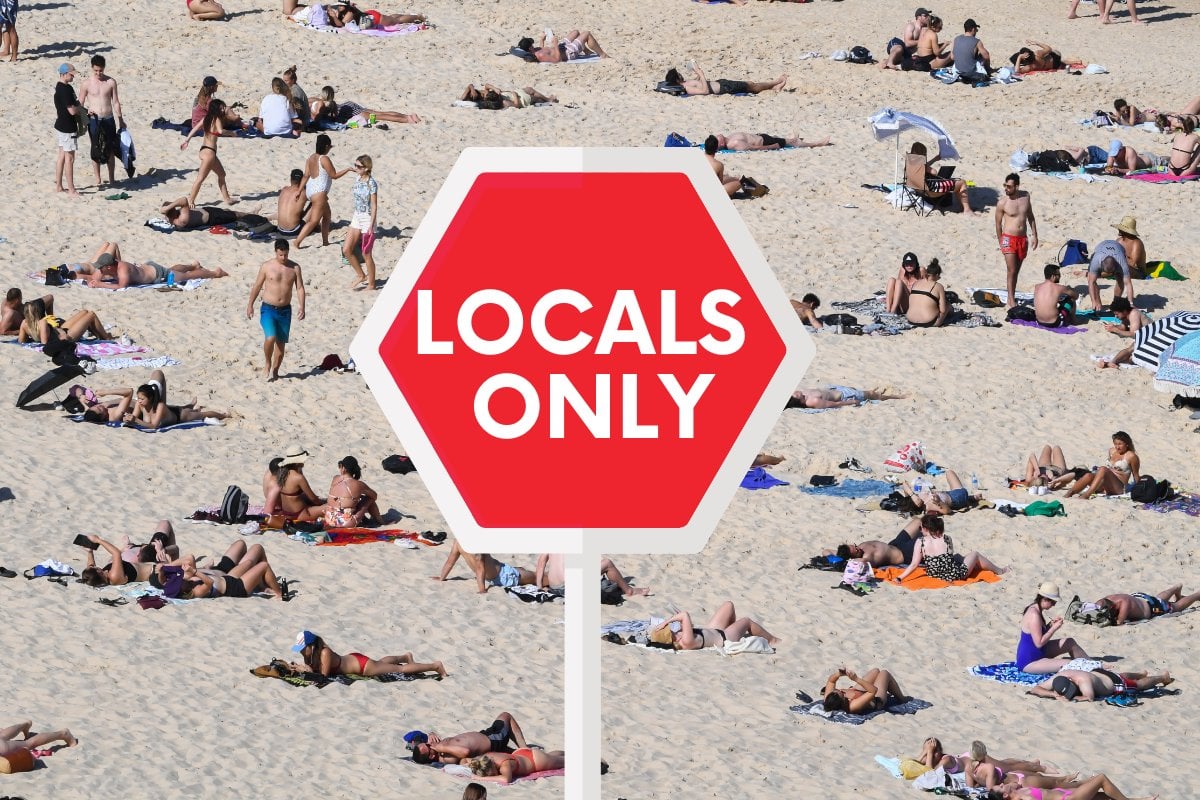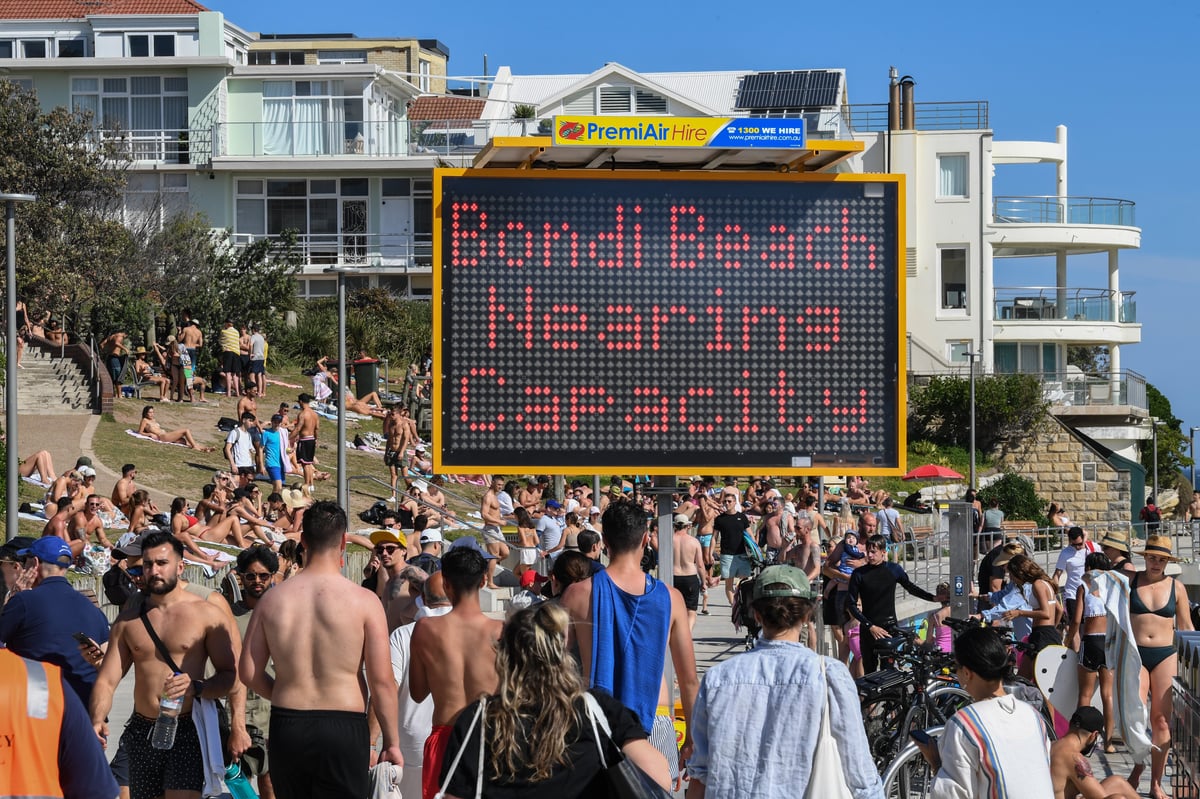
Who gets to go to the beach in 2020?
At Sydney's infamous Bondi Beach, a private company are trying to attract and reassure a COVID-savvy crowd by creating a Euro-style beach club. It will admit only those who are prepared to pay $80 for the privilege of spending two hours lying on a sun-lounger and forking over more fist-fulls of cash for food and drinks.
The Amalfi Beach Club's application is being considered by Waverley Council for the second time, but backers hope that there are enough wealthy locals who are pining for overseas holidays to get their plans approved. Charmingly, the club outlined their target market as 'bankers' for men and 'models' for women. So we can see what they have in mind: 1989. And Instagram.
Other councils around the city and the country are grappling with the dilemma of how to keep beaches safe as the weather gets warmer. When people are free to move around during a global pandemic, how do you stop them from moving towards the coast? Plans include closing car-parks, introducing time-limits, COVID marshalls galore and constant drone surveillance.
Put to the test in Sydney last weekend, it's going to be a careful dance of discouraging new arrivals, fast turnovers, and limiting numbers in every which way.
But really, what a lot of locals are whispering on community Facebook groups, scrawling on hastily-made signs and spray-painting on rocks is the same message the Amalfi Beach Club people hold deep down: Don't come. Our beaches aren't for you.
Locals only.
 Image: Getty.
Image: Getty.

Top Comments